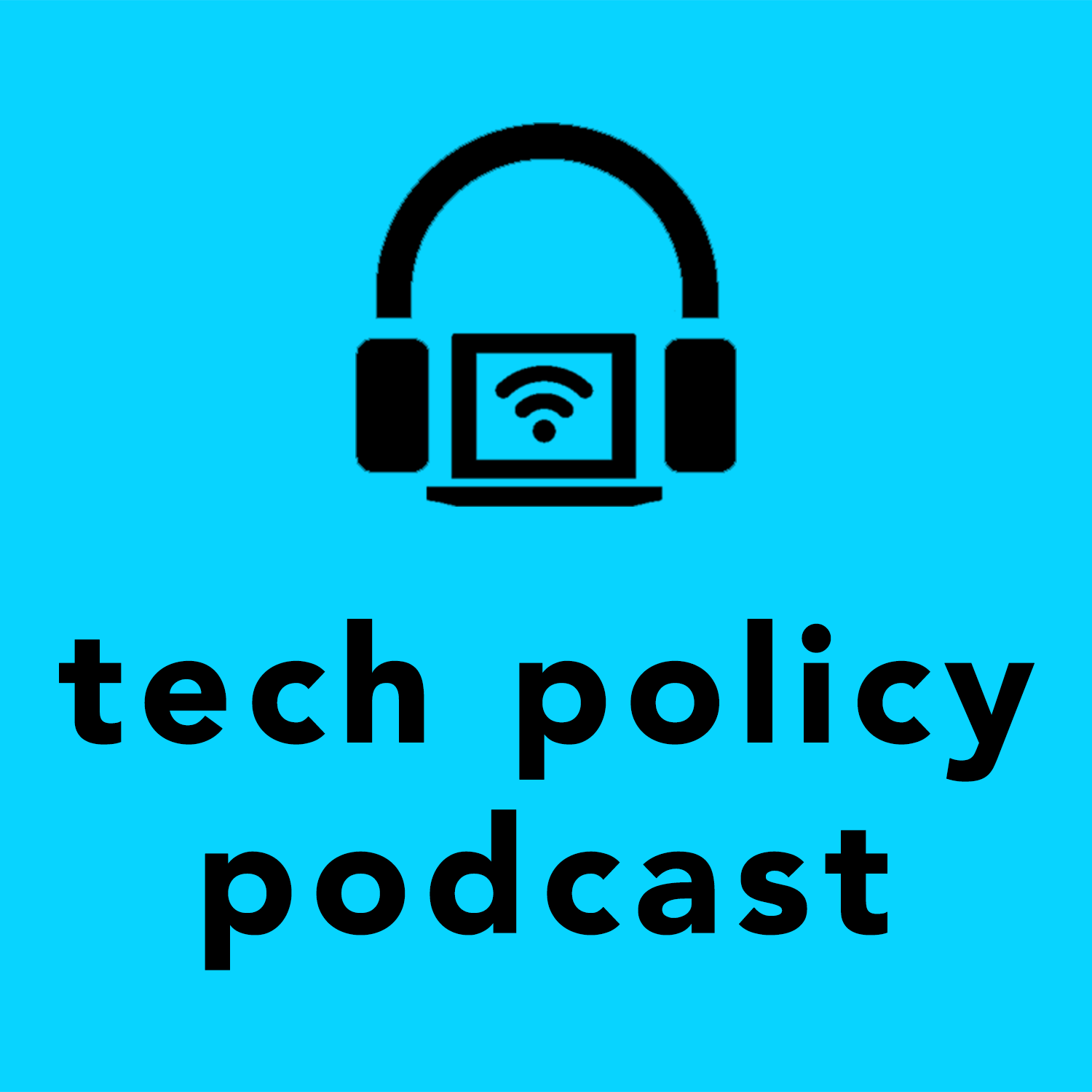Episodes
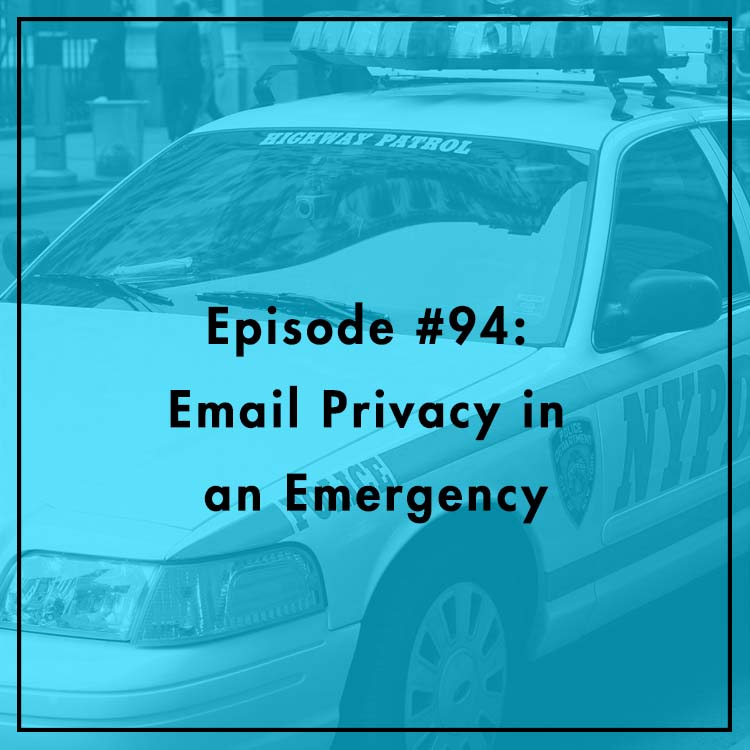
Thursday Jun 09, 2016
#94: Email Privacy in an Emergency
Thursday Jun 09, 2016
Thursday Jun 09, 2016
Email privacy reform passed unanimously in the House, but the Email Privacy Act has hit a snag in the Senate. Though the bill’s core mission — requiring warrants before law enforcement can access Americans’ online communications — is largely uncontroversial, some Senators are pushing an exception that would allow law enforcement to bypass warrant requirements in an emergency. Evan is joined by Jim Trainum, former police officer and co-chair of the Constitution Project’s Policing Reform Committee, who argued in a recent op-ed in The Hill that the emergency exception is both harmful and unnecessary. Is email privacy at an impasse? Can a compromise be reached?
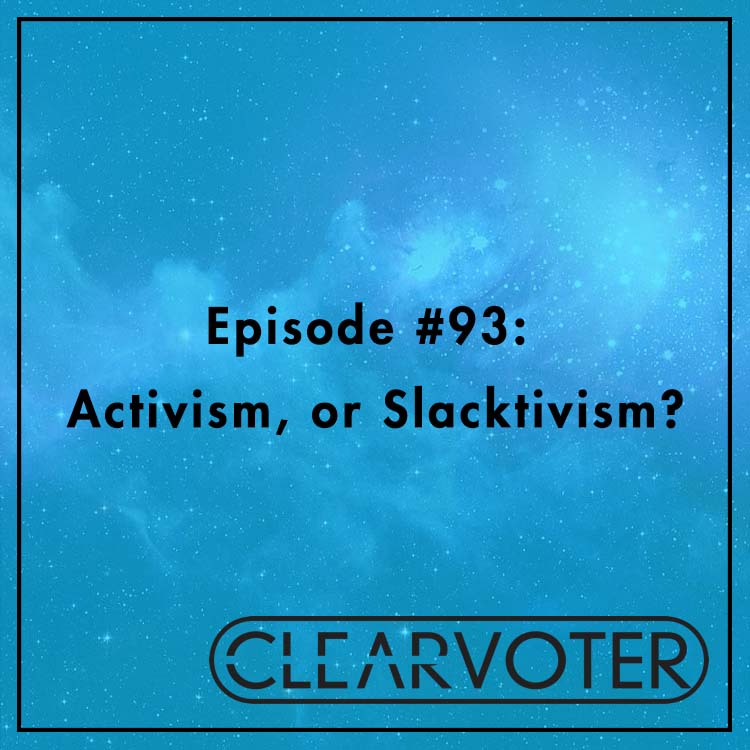
Tuesday Jun 07, 2016
#93: Activism, or Slacktivism?
Tuesday Jun 07, 2016
Tuesday Jun 07, 2016
Digital activism is often little more than trending hashtags and caps-locked arguments that devolve into Hitler comparisons, but a new company is hoping to take advantage of the connective power of the internet to form effective, local groups around specific issues. Evan is joined by Clearvoter Founder Michelle Ray to discuss how her organization plans to turn slacktivism into activism.
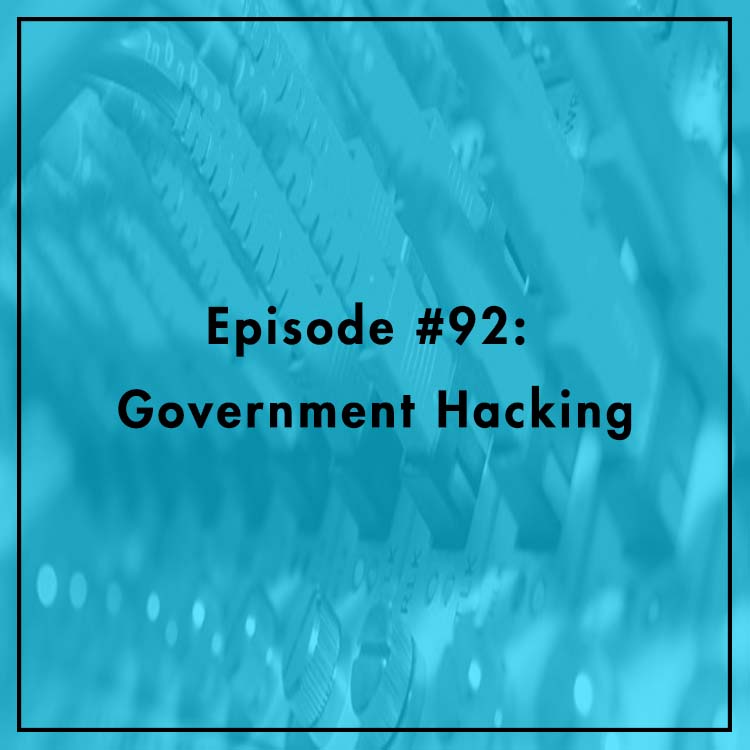
Monday Jun 06, 2016
#92: Government Hacking
Monday Jun 06, 2016
Monday Jun 06, 2016
If you get hacked, should the government hack back? Recent efforts have been made to fight the use of illegal botnets, but many privacy advocates are concerned that these policies will excessively expand government hacking powers and impede legitimate security research. Evan is joined by Drew Mitnick, policy counsel for Access Now, to discuss the proposals. Can government fight illegal botnets without harming privacy? Should government need your permission to hack on your behalf?
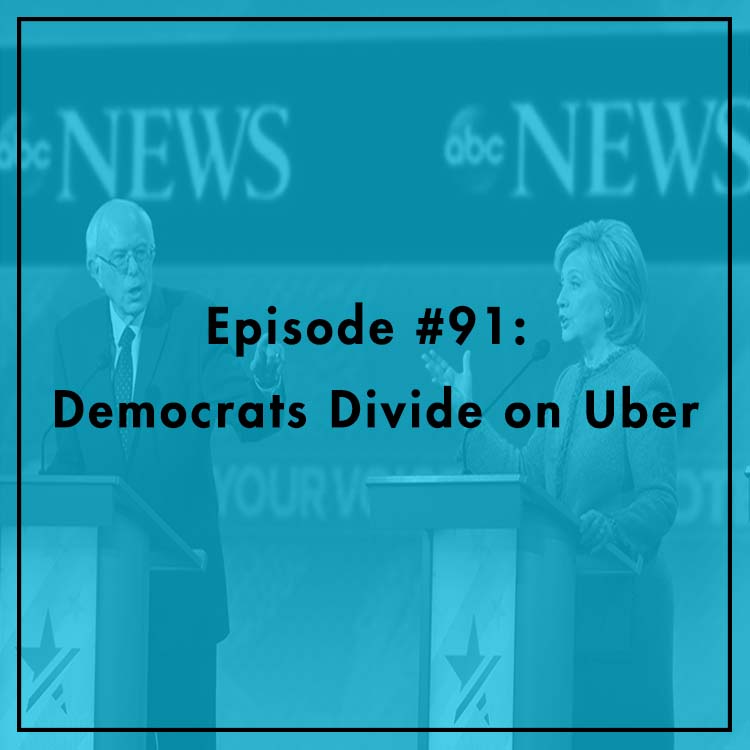
Thursday Jun 02, 2016
#91: Democrats Divide on Uber
Thursday Jun 02, 2016
Thursday Jun 02, 2016
Tech policy has gotten scant attention in the 2016 election, but Uber and the sharing economy are starting to break through. While Trump hasn’t said much, if anything, about ride sharing, erstwhile Republican candidates like Marco Rubio, Jeb Bush, and Carly Fiorina spoke favorably about the on-demand economy and urged government to largely stay out of the way. If the GOP is generally pro-Uber, are Democrats less uniform in their approach? How do Sanders and Clinton feel about the sharing economy? What about high-profile Dems like Elizabeth Warren. Evan is joined (again…) by Manhattan Institute fellow Jared Meyer to discuss Uber in the election and his new book Uber-Positive: Why Americans Love the Sharing Economy.

Tuesday May 31, 2016
#90: Media Ownership
Tuesday May 31, 2016
Tuesday May 31, 2016
The media and advertising markets are more competitive than ever, and it’s been awhile since radio, TV stations, and newspapers were the only games in town. As competition from the Internet is ever increasing, traditional media must adapt. Joint sales agreements (JSAs) allow two broadcast stations to have the same advertising sales force, which can increase efficiency and cuts costs. But the FCC’s media ownership rules have long restricted JSAs and other business practices like having radio and TV stations buy newspapers. Recently, a court threw out the FCC’s JSA rules over the agency’s failure to review its media ownership policies as mandated by Congress. Matthew Berry, chief of staff to FCC Commissioner Ajit Pai, joins the show to discuss the case. Where did the FCC go wrong?

Thursday May 26, 2016
#89: Arizona Tackles Airbnb, Home Sharing
Thursday May 26, 2016
Thursday May 26, 2016
There are two kinds of states: those that recognize home sharing, and those that pretend it isn’t happening. While regulations that provide a framework and certainty for an industry can actually be good companies like Airbnb and HomeAway, the devil is always in the details. Recently, Arizona passed a law on home sharing, and Carl Szabo, Policy Counsel for NetChoice, says other states should follow the Grand Canyon State’s example. Carl and Evan discuss the bill and how it differs from approaches in other states and cities. Should states have the final say on home sharing? Can localities be trusted to avoid regulatory capture? For more, see Carl’s op-ed in the Tech Policy Corner.

Wednesday May 25, 2016
#88: Regulating Fantasy Sports
Wednesday May 25, 2016
Wednesday May 25, 2016
How are states handling the controversial issue of regulating daily fantasy sports, including companies like DraftKings and FanDuel? As the industry has exploded in popularity, state lawmakers, attorneys general, and gaming commissions have taken different approaches. While some states have enacted outright bans, others are grappling with how to regulate a relatively new industry that claims its products are skill-based rather than games of chance. Chris Koopman, research fellow at the Mercatus Center, returns to the podcast to discuss the latest developments in the wild world of online fantasy sports. For more, see our previous episode on this topic.
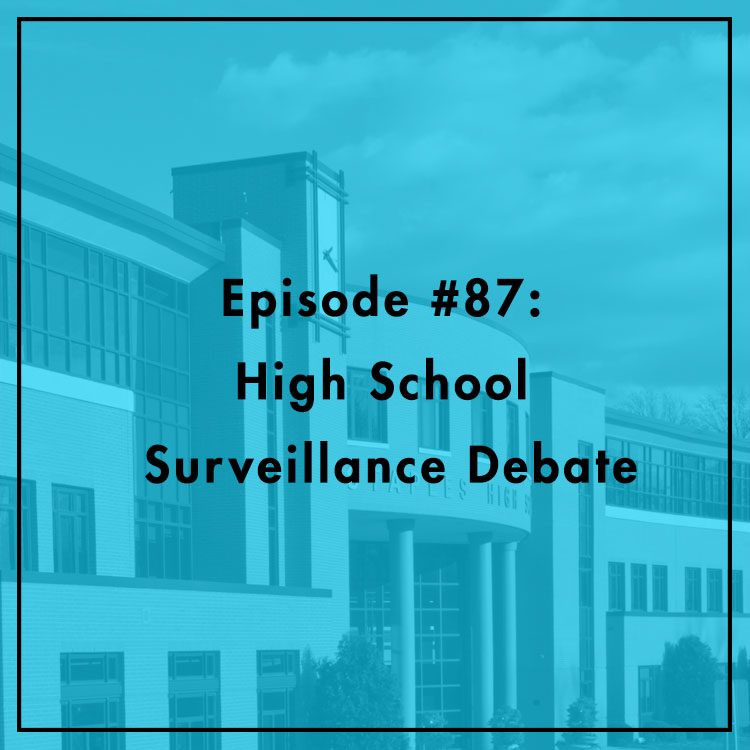
Tuesday May 24, 2016
#87: High School Surveillance Debate
Tuesday May 24, 2016
Tuesday May 24, 2016
If you’re looking for a nuanced, thoughtful debate on government surveillance, you probably won’t find it in Congress. But look no further than American high schools. Jenna McLaughlin, a national security and surveillance reporter for The Intercept, immersed herself in a major high school debate competition. She found the arguments to be much more substantive and scrutinized than the claims about surveillance made in the halls of Congress. She and Evan discuss her feature article, high schoolers’ views on surveillance, and how different generations view the issue.
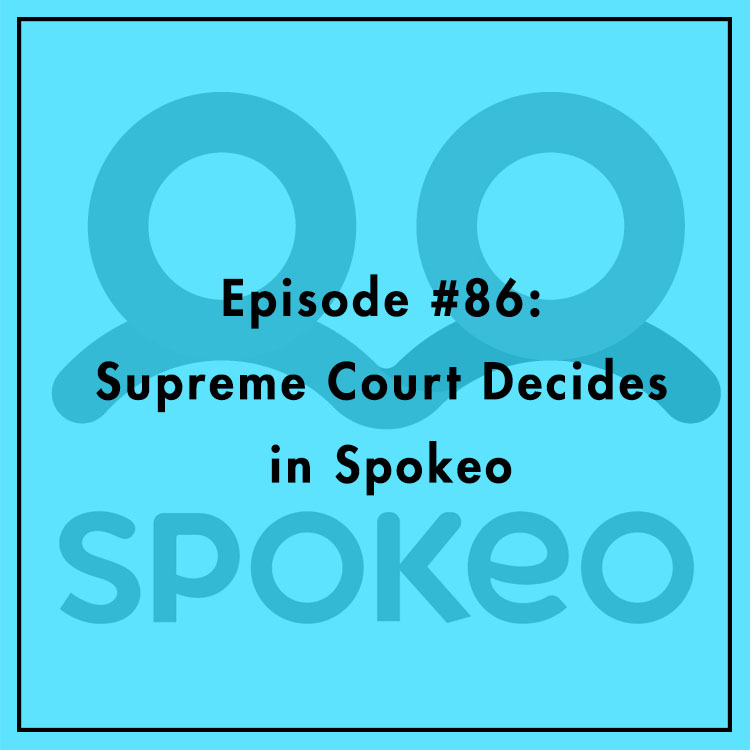
Monday May 23, 2016
#86: Supreme Court Decides in Spokeo
Monday May 23, 2016
Monday May 23, 2016
Spokeo is a search engine for people. But unlike your phone book, Spokeo claims to glean its information from public databases, such as social media profiles. So when the site allegedly posted false info about Thomas Robins, he sued. On May 16, the Supreme Court issued its decision in Spokeo v. Robins, the latest in a line of cases where the Court tries to flesh out when a plaintiff is allowed to sue in federal courts — that is, whether the plaintiff has "standing." Evan is joined by Adam J. White, a research fellow at the Hoover Institution and of counsel at Boyden Gray & Associates. They discuss the case and its implications for tech policy. Why are big players like Google and Facebook so interested in the outcome?
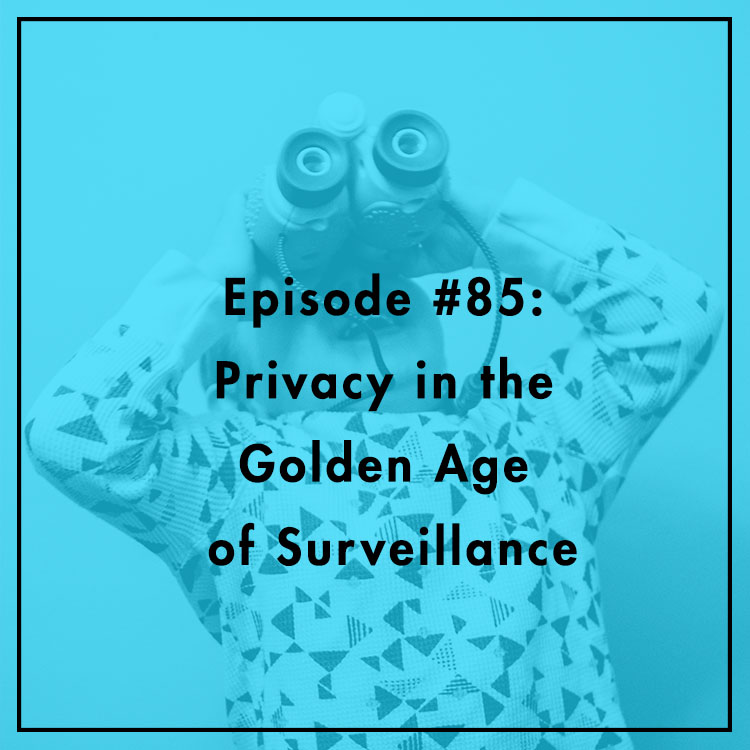
Friday May 20, 2016
#85: Privacy in the Golden Age of Surveillance
Friday May 20, 2016
Friday May 20, 2016
In the “Golden Age of Surveillance,” are limits on government data collection really enough to protect privacy? Is mass surveillance inevitable? In the past, there was a “wall” between intelligence agencies and law enforcement. This separation protected Americans from being prosecuted for crimes unrelated to national security with information swept up in intelligence operations. But, in a post-9/11 world, government is increasingly blurring the lines between the NSA and your local police department. Evan is joined by Jake Laperruque, Privacy Fellow at the Constitution Project. They discuss proposed limitations on how government uses data after they’re collected. Is a chain link fence the sensible alternative to a wall? For more, see Jake’s paper.

